Horizon Structures Presents Series: Interior Design Tips For Your Tack Room
February 20, 2024 Comments Off on Horizon Structures Presents Series: Interior Design Tips For Your Tack Room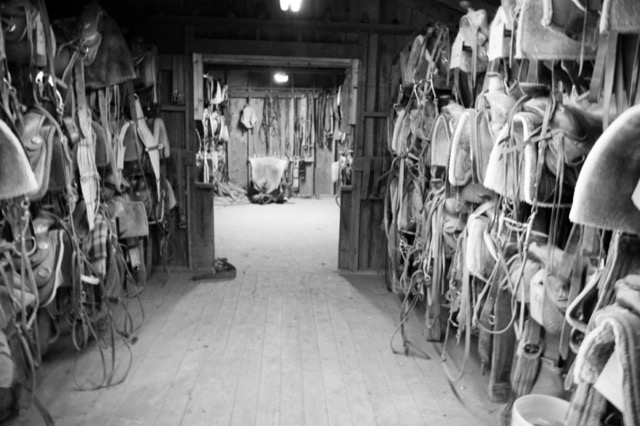
By Nikki Alvin-Smith for Horizon Structures Do you know the artful ways to make small spaces feel like big places? Interior design knowledge can help you make the most of your horse barn tack room space. Improve the form, fit and functionality with these simple approaches to design. These methods are all easy to implement […]
Continue reading …Exhibitor Notice: World Equestrian Center – Wilmington EHV – 1 Precautions
February 19, 2024 Comments Off on Exhibitor Notice: World Equestrian Center – Wilmington EHV – 1 Precautions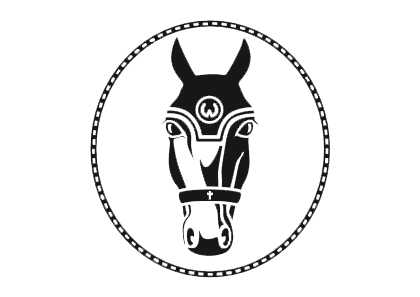
From World Equestrian Center: Following the report of a positive EHV-1 case at a local Ohio horse show facility, World Equestrian Center (WEC) extends its thoughts and prayers to the affected horses and their owners, trainers and caregivers. While no horses have tested positive for EHV – 1 at WEC – Wilmington, horses that have […]
Continue reading …Kentucky Equine Research Nutritionist Tackles Food Allergies in Horses on Podcast
February 16, 2024 Comments Off on Kentucky Equine Research Nutritionist Tackles Food Allergies in Horses on Podcast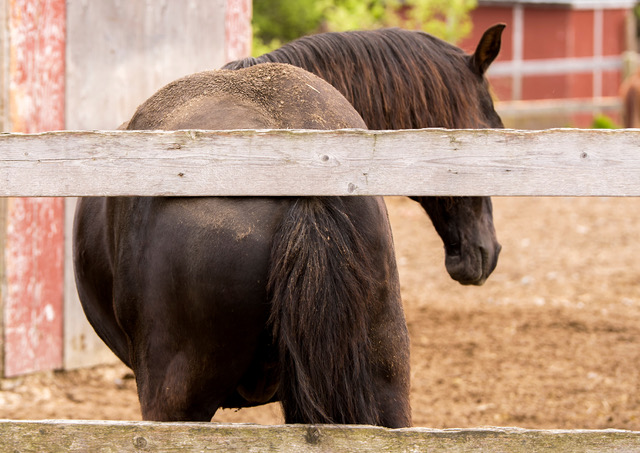
By Kentucky Equine Research Staff: Kentucky Equine Research nutritionist Katie Young, Ph.D., recently sat down with the podcast“Tack Box Talk” for an episode titled, “Allergen and Microbiome Testing: Are They Worth It?” Because of her background in equine nutrition, Young has encountered several horse owners who have provided lists—sometimes long lists—of feedstuffs their horses couldn’t […]
Continue reading …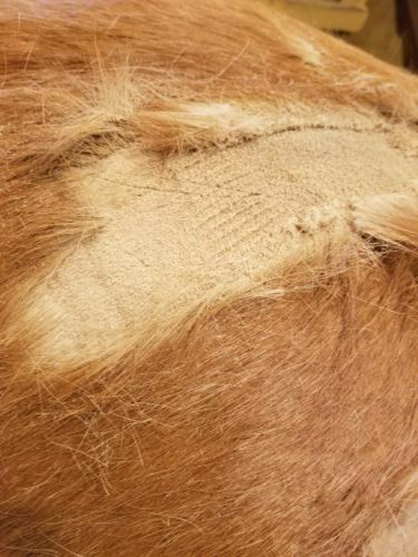
A standard body clip is done with a #10 blade, and you should have at least three blades on hand. Blade cleaning supplies include blade wash and blade coolant. Things that aren’t exactly necessary, but can be very useful to have on hand, include a twitch, coat conditioner such as Showsheen, towels and one unexpected tool: sidewalk chalk.
Continue reading …Mythbusters from AAEP: Horses and Protein
February 8, 2024 Comments Off on Mythbusters from AAEP: Horses and Protein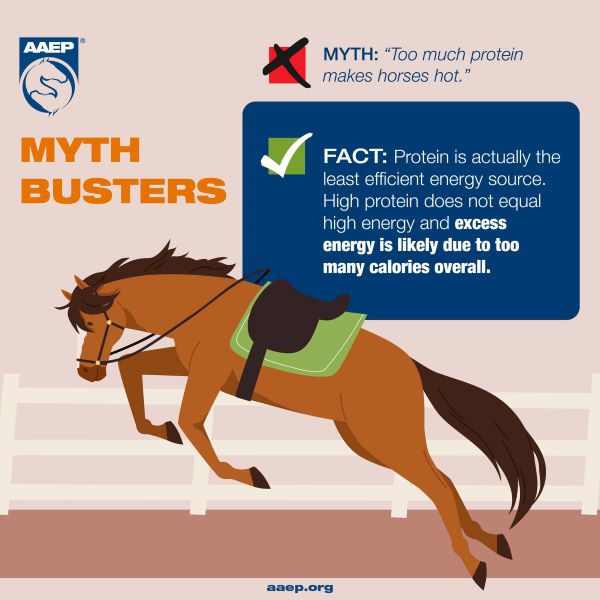
From the AAEP Horse Owner Education Committee: Although protein is normally listed as a nutrient, horses actually have a requirement for amino acids, the building blocks of protein, rather than for protein itself. Protein is the least efficient energy source for your horse, so high protein does not automatically equal high energy. Carbohydrates, fats, and fiber […]
Continue reading …Horse Arena Footing 101: Everything You Need to Know
February 7, 2024 Comments Off on Horse Arena Footing 101: Everything You Need to Know
From Premier Equestrian: Riding arena surfaces are made up of multiple layers. But what is the actual horse arena footing? Premier Equestrian explains the different layers that make up an arena surface and important considerations for selecting horse arena footing. What Is Arena Footing? Arena surfaces are made up of multiple layers. The sub-base is […]
Continue reading …Scenes from Scottsdale – Troy Oakley Mentoring Program Continues to Triumph
February 3, 2024 Comments Off on Scenes from Scottsdale – Troy Oakley Mentoring Program Continues to Triumph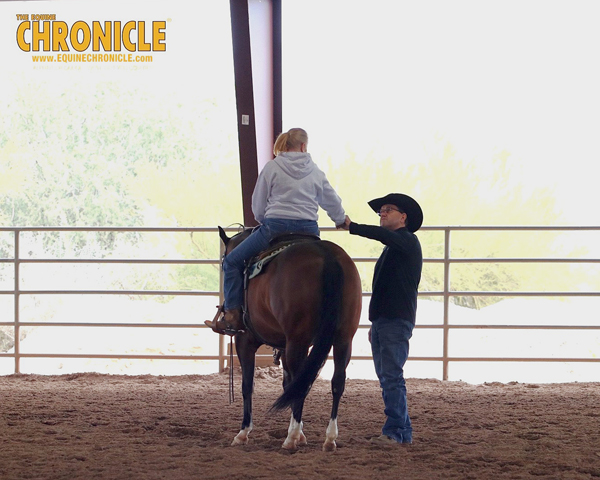
By Delores Kuhlwein Troy Oakley’s blockbuster mentoring program has taken off since he announced it in the fall of 2023, explaining that he’s going to be Changing Lives, One Rider At a Time. “I’m not here to take anyone’s clients; I want to enhance your abilities and change lives one at a time,” he explains. […]
Continue reading …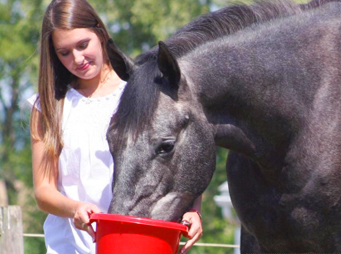
From Equine Science Update: As feed expenses escalate in the horse industry and hemp becomes more accessible, researchers are examining hemp as a potential substitute for horse feed. A recent American study examined the palatability and acceptability of hempseed meal pellets, comparing them to other commonly used horse feed options. Ryon W. Springer and co-workers conducted the research at the […]
Continue reading …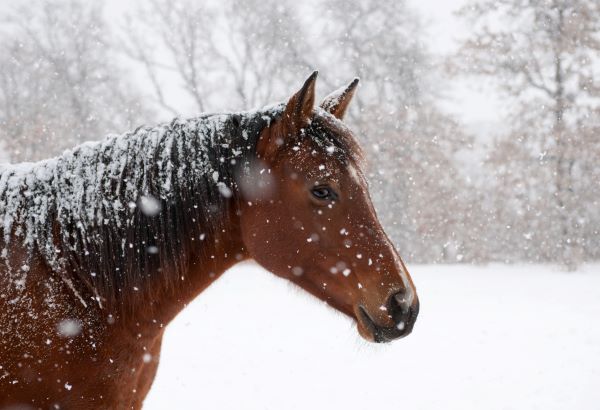
By Brian S. Burks, DVM, Diplomate, ABVP, Board-Certified Equine Specialist Fox Run Equine Center Horses handle winter much better than humans, even at 40 below zero, if allowed to gradually adapt and in good body condition. There are some breeds of horse that have adapted for even colder temperatures, including the Yakut, Icelandic, Bashkir, and […]
Continue reading …Protecting Horse Lungs in Cold Weather
January 23, 2024 Comments Off on Protecting Horse Lungs in Cold Weather
By Brian S. Burks, DVM, Diplomate ABVP, Board Certified Equine Specialist Fox Run Equine Center Horses are comfortable in temperatures much lower than humans prefer. In the absence of wind and moisture, horses tolerate temperatures at or slightly below 0° F. If horses have access to a shelter, they can tolerate temperatures as low […]
Continue reading …







